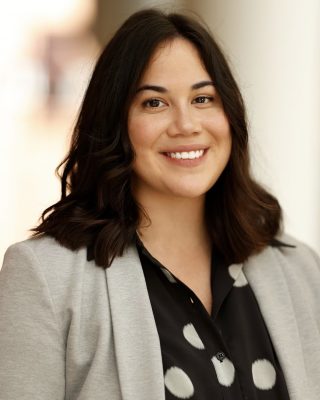Q&A with Michaella Wu, MPH Candidate in Global Health

Michaella Wu
What was your background before enrolling in the MPH program?
I graduated from North Carolina State University in 2020 with a Bachelor of Arts in Biology. I was originally on the pre-medical track, but was questioning my passion for the career field. It was then that I interned for the North Carolina Department of Health and Human Services (NCDHHS) with their Women’s and Children’s Health branch. I fell in love with the prospect of improving human health on a larger scale through upstream approaches. For example, I helped develop training materials informing health professionals of the importance of health equity and safe sleeping practices for infants. After my experience with NCDHHS came to a close, I knew I wanted to continue this line of work and promptly applied to UNC Gillings!
Can you tell us about your work as a Research Assistant for the Instituto de Efectividad Clínica y Sanitaria?
During my time with the Instituto de Efectividad Clínica y Sanitaria (IECS), I contributed to the evidence base for a variety of projects addressing nutritional deficiencies and inequitable health care delivery among women worldwide. Specifically, I collected data and contributed to a manuscript for a research project aimed at fortifying global water sources with calcium. The aim of this project is to mitigate adverse health outcomes in communities facing calcium deficiency. I also contributed to a manuscript summarizing the results from our investigation of potential global inequities in cesarean sections and required resources (shoutout to my amazing research partner, Paulina Nichols!) We hope to publish both manuscripts, which are in the peer-review process currently.
Will you tell us about your poster presentation at this year’s Triangle Global Health Consortium Annual Conference?
Yes! This past Fall, Paulina Nichols and I had the amazing opportunity of presenting our work on global inequities in cesarean sections and required resources (previously mentioned) at the Triangle Global Health Consortium Annual Conference. TGHC is a collaborative effort to connect those involved in global health advocacy, research, education and training. As poster presenters, we were able to share our findings with other Conference attendees and talk about the importance of centering women’s decisions in birthing options to avoid unnecessary cesarean sections.
Will you tell us about your work with Recovery Alliance Initiative?
Recovery Alliance Initiative (RAI) is a nonprofit organization dedicated to supporting sustained and meaningful recovery of substance use disorder (SUD) through community collaboration. My daily tasks included assisting with coalition building in Orange County, NC through content creation and stakeholder engagement. During my time with RAI, I helped organize and assemble current resources supplementing our Community Collaborative initiative, which aims to unify all local providers in addressing the prevention, treatment and recovery or SUD to benefit Orange County’s 148,000 residents. Working with RAI has been a great opportunity to do public health work so close to home!
What does “global health” mean to you?
To me, global health is a multifaceted approach to health that takes into account underlying influences of globalization, colonization, and culture on individuals and communities. I am hopeful that the more we understand how such forces shape one’s identity and surroundings, we can truly understand how to equitably address disease and illness around the world.
What drew you to the Gillings School of Global Public Health?
Upon admission, I attended one of the school’s events for accepted students. After meeting some of the amazing and passionate faculty members and current students there, I decided UNC Gillings was where I wanted to pursue my MPH.
What is your dream job?
I’m still figuring that out myself, but I would have to say working as a program director (or some other higher position) at a non-governmental organization that is dedicated to expanding women and girls’ opportunities worldwide is my dream job. This aligns well with my interests in sexual and reproductive health and gender equity, as evidence suggests universally expanding women’s access to economic and social opportunity (such as improved education) would eliminate a lot of inequalities we see in health outcomes inflicted on women and girls.
If I had to choose a dream job unrelated to public health, assuming I had the credentials, I think it would be really cool to work as a book editor. Getting paid to read books all day just sounds very appealing to me!
What is your perception of taking on risk?
I think without taking on risk, we would not have a lot of breakthroughs we see today. However, as a public health student, I think it is important that this risk does not outweigh the potential benefits a program or project may have on a community. As a planner, I like to evaluate potential risks before diving headfirst into something, especially if it affects others, intentionally or unintentionally. I think there’s a certain balance to maintain with taking on risk, and I’m still working on that myself!
